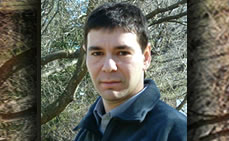ETHICS COLUMN
Mohel Madness: Religion Tradition vs. Infant Welfare
By Jacob M. Appel, MD, JD
 The city that tackled indoor smoking appears poised to combat a less visible challenge to the public health: metzitzah b’peh. This circumcision ritual, practiced by segments of New York’s ultra-Orthodox Jewish community, entails sucking blood by mouth from the boy’s penis during a bris. Unfortunately, the practice appears to spread life-threatening herpes infections to these infants; the New York City Department of Health attributes 11 cases and two deaths to the ritual since 2000. As a result, many Orthodox Jews have replaced mouth-to-penis contact with the use of sterilized pipettes. For those who still prefer metzitzah b’peh, the Health Department has proposed that parents be required to sign a consent waiver prior to circumcision. The Board of Health will vote on the plan in September. In light of the threat to pediatric health, one might reasonably ask: Why permit the practice to continue at all?
The city that tackled indoor smoking appears poised to combat a less visible challenge to the public health: metzitzah b’peh. This circumcision ritual, practiced by segments of New York’s ultra-Orthodox Jewish community, entails sucking blood by mouth from the boy’s penis during a bris. Unfortunately, the practice appears to spread life-threatening herpes infections to these infants; the New York City Department of Health attributes 11 cases and two deaths to the ritual since 2000. As a result, many Orthodox Jews have replaced mouth-to-penis contact with the use of sterilized pipettes. For those who still prefer metzitzah b’peh, the Health Department has proposed that parents be required to sign a consent waiver prior to circumcision. The Board of Health will vote on the plan in September. In light of the threat to pediatric health, one might reasonably ask: Why permit the practice to continue at all?
Competent adults are generally permitted to risk their own lives to fulfill religious obligations. However, our laws usually afford parents less latitude where vulnerable minors are concerned. Supreme Court Justice Wiley Rutledge wrote memorably in the case of Prince v. Massachusetts that “parents may be free to become martyrs themselves. But it does not follow they are free … to make martyrs of their children.” So while we allow adult Jehovah’s Witnesses to reject blood transfusions and adult Christian Scientists to refuse antibiotics, we impose identical care on their offspring, under the theory that children should be kept alive until they can make informed, mature decisions of their own.
An alternative approach is possible. Former Nuremberg prosecutor and Justice Robert Jackson argued that religious minorities should be able to subject their children to risks — as long as the consequences affect only their own coreligionists. Under this theory, a Jehovah’s Witness parent may reject a transfusion for a child because the choice is an internal community matter; in contrast, a parent cannot reject childhood vaccinations or pediatric tuberculosis therapy on religious grounds, as these decisions affect the public at large. The advantage of this course is that it protects the freedom of religious minorities from the majority’s notions of morality. Although this second approach has merits, it has largely been rejected by American legislatures and courts.
A few physicians argue that no direct link exists between herpes and metzitzah b’peh. These dissenters deserve a fair hearing. But if the evidence bears out Health Commissioner Thomas Farley’s conclusion that the procedure cannot be done safely, the city should either prohibit it outright or offer a compelling argument for not doing so. After all, we don’t afford Jehovah’s Witnesses the right to sign consent waivers and then deny transfusions to their kids. One senses that the difference between these cases is that the authorities fear banning an ancient ritual of the ultra-Orthodox Jewish community. In light of the history of prejudice against Jewish practices, this sensitivity is understandable. At the same time, the public health authorities ought to ask themselves whether respect for religious tradition justifies placing the lives of infants in jeopardy. #
